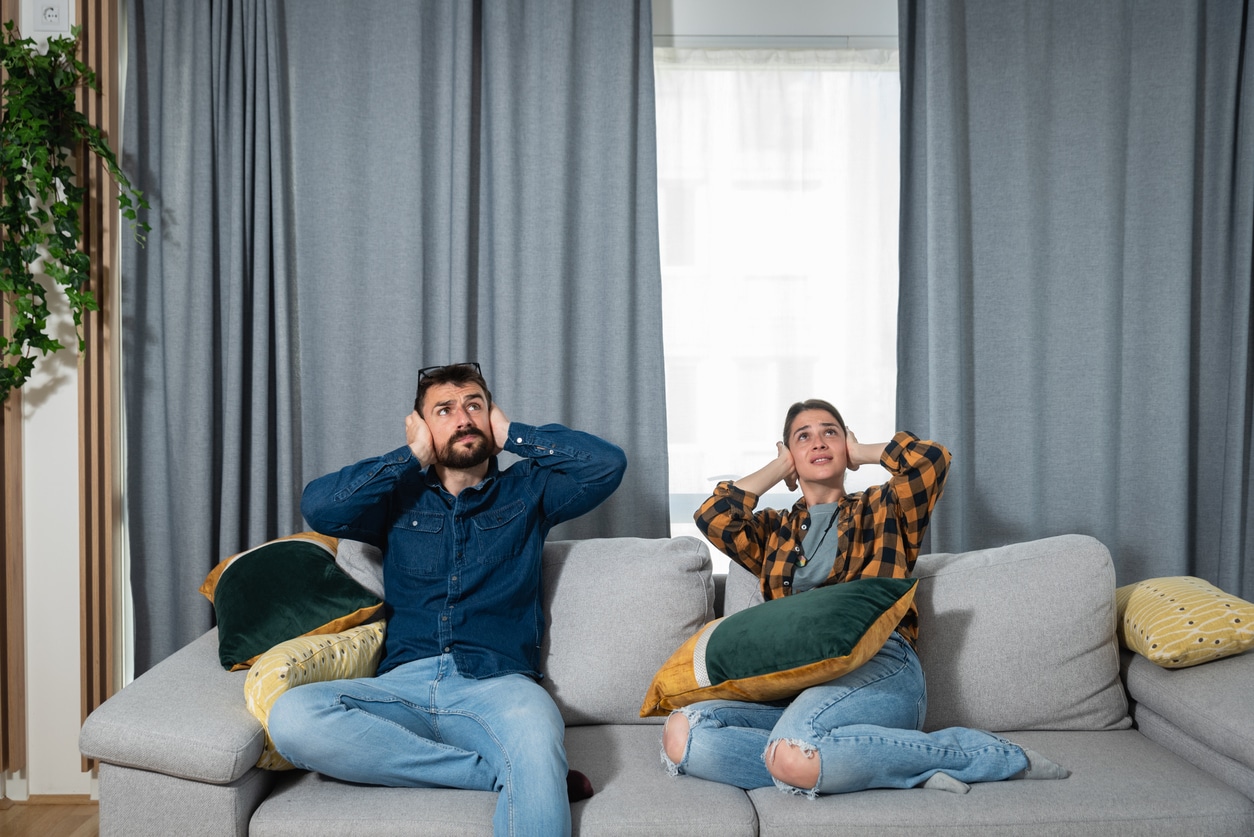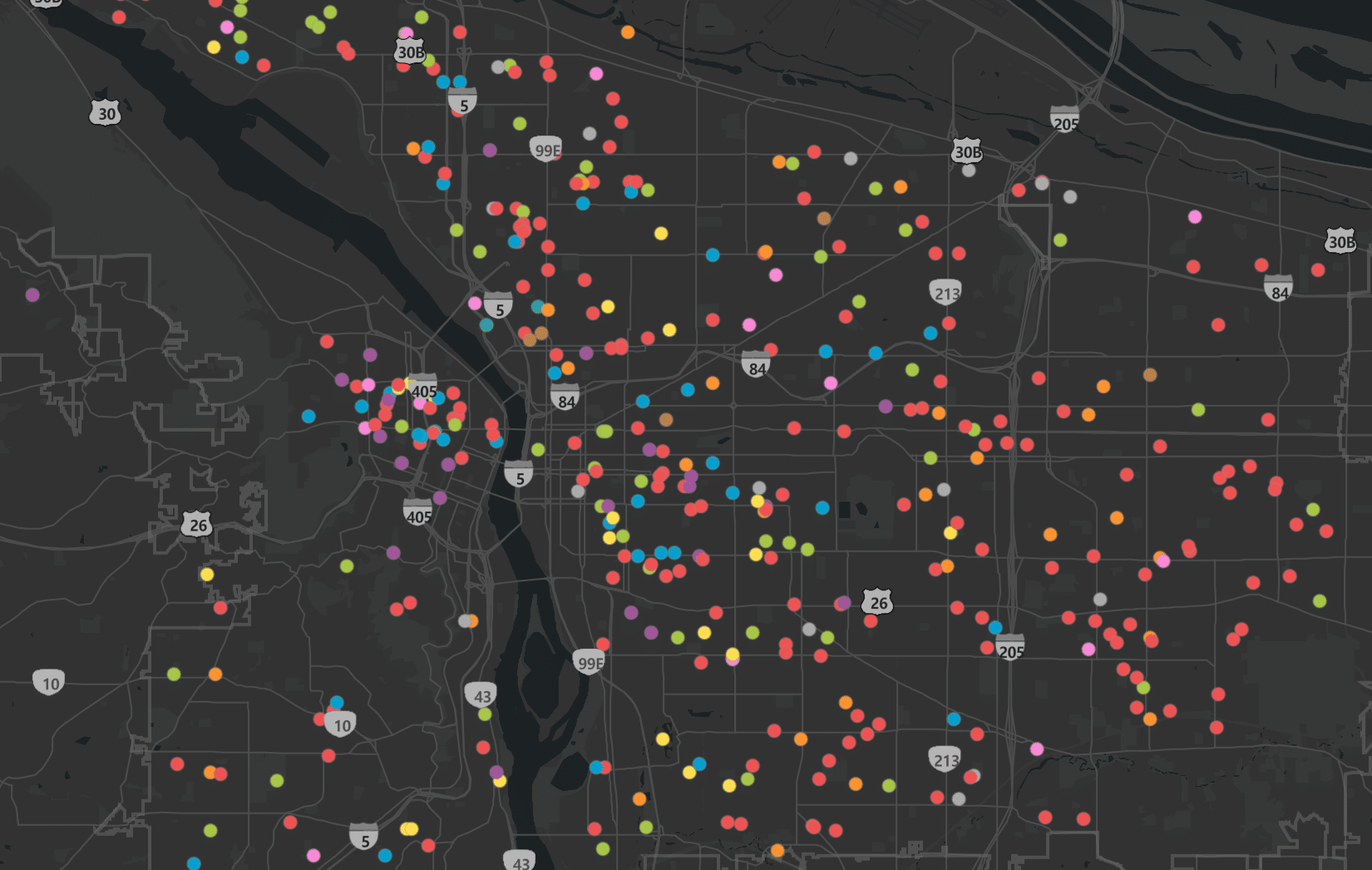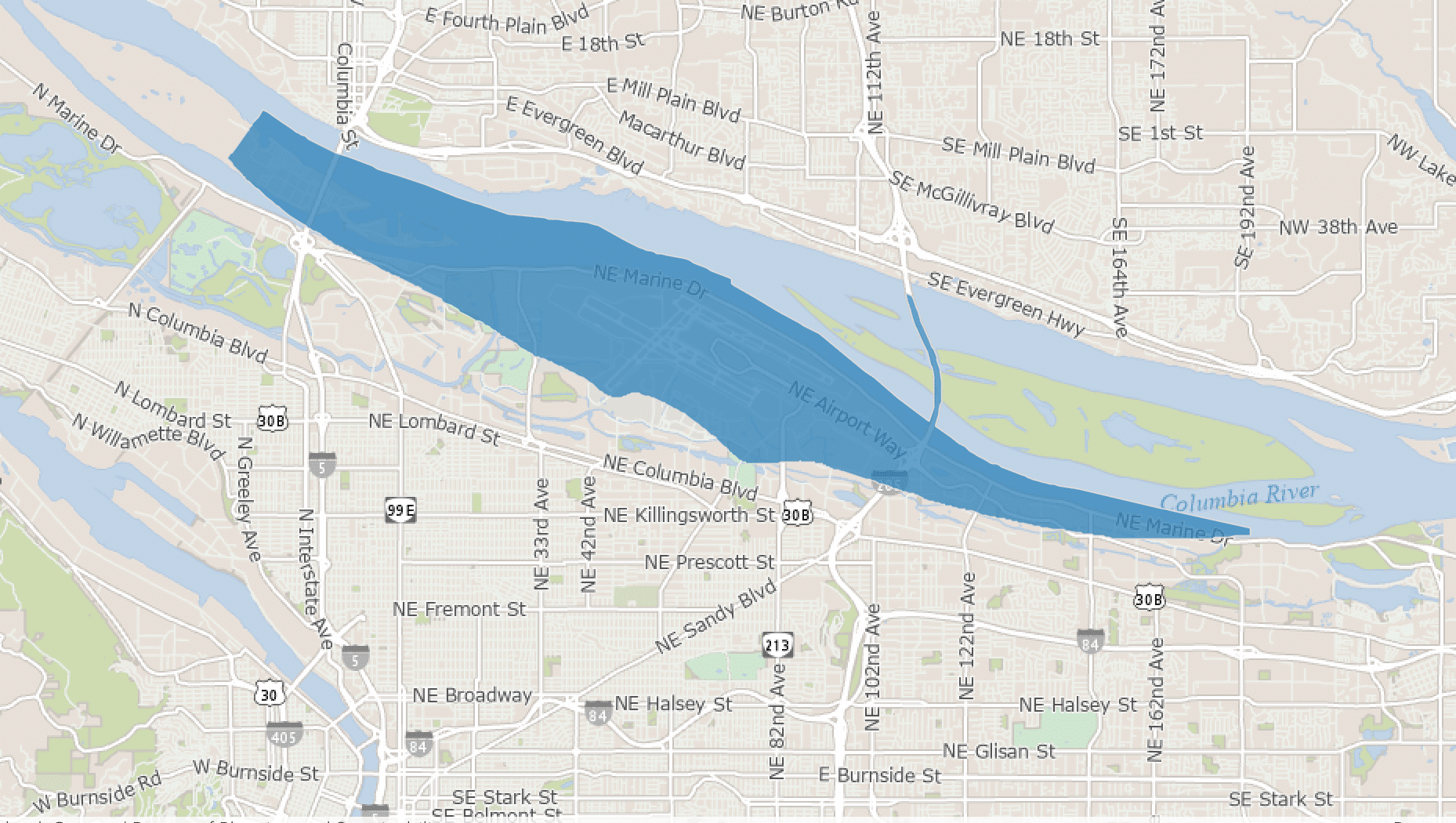What are the Quietest (and Loudest) Neighborhoods in Portland?

Did you notice how quiet life got at the beginning of the 2020? As we all sequestered indoors, traffic decreased—even disappeared in some areas, the din of human voices didn’t mix and mingle with the airwaves, and even mass transit met a lull for a short time.
But life goes on, and humans find ways to maintain and continue. When the world re-opened noise levels went back up to normal.
Whether you’ve stayed put since then, whether you made a move, or whether you’re thinking about making a move now, knowing where to find peace and quiet is important for quality of life.
We took a recent look at noise complaints and found some of the quietest (and loudest) neighborhoods in the Portland, Oregon metro area.
Neighborhood Noise Pollution, A Threat to Your Health
In urban environments, noise is everywhere, from abrupt, acute situations, like leaf blowers, jets, construction, and loud outdoor music events, to more chronic, almost unnoticeable, occurrences that become part of the fabric of city life, like constantly running HVAC systems and traffic, including mass transit. These constant sounds can turn up the decibels to 80 dB in some residential areas, the equivalent of standing next to a perpetually running vacuum. Because noise isn’t tangible, it’s easy to be unaware of its effect on us.
But noise pollution is real, and with it comes challenges to our day-to-day quality of life, including certain health concerns. The Environmental Protection Agency (EPA) has deemed noise pollution a threat to our overall health, noting its contribution to stress-related illnesses, hearing loss, speech interference, high blood pressure, and lost productivity, as well as cardiovascular disorders, ulcers, sleep disturbances, and even low birth weight in babies.
Invasive and constant noise can present learning challenges for kids, too, and especially for those with ADD and ADHD. Sound pollution can also have a notable impact on mental health. A European study noted an increase in anxiety medications in those living in areas with a 10-decibel increase in airport noise. Another follow-up study found marked depressive symptoms in people who lived in areas with high residential traffic noise.
Not only does noise pollution have a definable impact on our physical and mental health, but one study also found that home values go up between 8-10% when a home is away from a busy road.
Noise Complaints in Portland
Loud stereo music tops the list of residential noise complaints in Portland, followed by construction noise and live, amplified outdoor music.
Life east of the river is noisier than life west of the river, and the further northwest you go, the quieter you’ll find (hilly and forested areas cut down on noise significantly).

Noisiest Neighborhoods in Portland
Some of the noisiest neighborhoods in Portland are in the city’s northeast quadrant. Add all the disruption the airport generates to the usual noises most city dwellers consider “business as usual,” and you have a whole other layer of noise pollution to consider.
Moving to some of Portland’s northeast neighborhoods is not your best option if this concerns you. Take, for example, Portland’s Sunderland neighborhood. Not only does it sit directly next to Portland International Airport’s boundary, but it’s also located within a mostly industrial neighborhood. Other neighborhoods in this area are Cully, Sumner, Parkrose, and, to a lesser degree, Argay Terrace. If you’re looking for quiet, these neighborhoods are not for you.
Of course, for many, where they live is not determined by choice. A 2017 study shows the unfortunate reality that low-income neighborhoods, and especially minority neighborhoods, have some of the highest noise pollution because they are typically situated near industrial parks, roadways, and airports.
The Portland International Airport Noise Impact Overlay Zone is intended to reduce the impact of aircraft noise surrounding Portland’s airport by limiting residential densities and requiring noise insulation, along with noise disclosure statements and noise easements.

Other Portland neighborhoods subject to potential long-term construction noise are those running along I-5. They are Lloyd District, Eliot, Boise, Humboldt, Piedmont, and East Columbia on the east side of I-5. Neighborhoods on the west side of I-5 are Overlook, Arbor Lodge, and Kenton.
What Makes a Neighborhood Quiet?
There are a few things you can look for when shopping for a home and want to consider noise levels.
- Culture. Understanding a neighborhood’s culture is part of determining whether it is right for you. All neighborhoods generate noise, so your choice and decision may rest on the noise you prefer or can tolerate. For example, some neighborhoods may be overrun with leaf blowers at 6 AM, while others might be silent after sunrise but come alive when the sun goes down with parties, outdoor gatherings, and music.
- Distance. Check how far the neighborhood is from the nearest “point source” of noise, like a freeway, factory, or distribution warehouse. Those sensitive to noise should seek to live along strictly residential roads, where unnecessary traffic is not likely to pass through. And remember, rural areas can also be noisy from farm equipment and other activities.
- Density. Let’s face it: Humans are noisy. The more people in a neighborhood, the louder it will be. Portland population densities range from 15,500 people per square mile (in the Goose Hollow neighborhood near downtown) to the low hundreds of people per square mile, where homes are larger and/or farther apart.
- Trees & greenery. Not only do trees absorb sound, but they also create distracting light “white noise” (rustling of leaves, birdsong, etc.) that can help mask some of the more disruptive noises in your environment.
Our Top Picks for the Quietest Portland Neighborhoods
Northwest Portland
Virtually all of Northwest Portland, outside the boundaries of the NW 23rd-Nob Hill District, was void of noise complaints, except for a single complaint of a roof fan in Northwest Heights. This incident aside, we consider the neighborhood one of our top picks.
Check out the links below and see what these neighborhoods have to offer.
See all northwest Portland neighborhoods.
Southwest Portland
While there were more noise complaints in some of Portland’s southwest neighborhoods, they were far fewer than those on the east side of the city. Taking this into account, along with the fact that I-5 and Highway 26 run through several of these neighborhoods, below are our picks for Southwest Portland.
One thing to keep in mind about this part of the city is that it’s densely wooded, so there are likely pockets in some southwest neighborhoods not listed here that also offer peace and quiet, even with nearby freeway noise.
See all southwest Portland neighborhoods.
Ways to Protect Yourself from Noise Pollution
When shopping for a home, the obvious solution is to look for some of the quieter neighborhoods in Portland. However, you can’t always choose where you live, and maybe the home of your dreams is smack in the center of the noisiest part of the city. There are some things you can do to reduce noise pollution impact in your home, thankfully, ranging in simplicity from wearing earplugs to sleep to planting a whole new row of trees.
If you’re looking to lessen the impact of outside sounds on your home as a whole, there are some larger steps you can take. For example, improving the insulation of your home impacts more than just how warm or cool your home is. Home insulation also helps block out unwanted noises, leading to less noise pollution impact. While not everyone is game to replace the insulation in their home, it can have a significant benefit on the overall noise in the area.
You can also do some landscaping to help reduce noise. Adding trees to your property not only blocks noise, but it also produces white noise, which can help distract from the louder noises going on in the neighborhood. You can also invest in a fence to help block some of the sound waves. While these are costly solutions, if the home of your dreams is near I-5 or surrounded by loud construction, doing a bit of landscaping can make a world of difference.
If the source of noise comes from your neighbors, there are some solutions. White noise machines can help dampen the noise in your home. On top of this, investing in noise-suppressing flooring (such as carpeting) can make a huge difference in how sound travels. Less permanent solutions can also involve hanging up noise suppression panels on the wall closest to your neighbors, or working to fill rooms closest to your noisy neighbors with more furniture to act as a sound buffer.
Looking for a New Home in a Quiet Location?
Give our top 1% buyers team a call today. We have the full list of homes for sale in the Portland metro area in quiet neighborhoods. We’ve been matching homes to new owners for more than 20 years now and we’d love to help you find your next perfect place. Or if you’re looking to move out of a noisy neighborhood, contact our top 1% sellers agents who charge less than average rates, but provide better marketing than most. Chat with the bot on this site or give us a call today at 503-714-1111. We’d love to connect!


